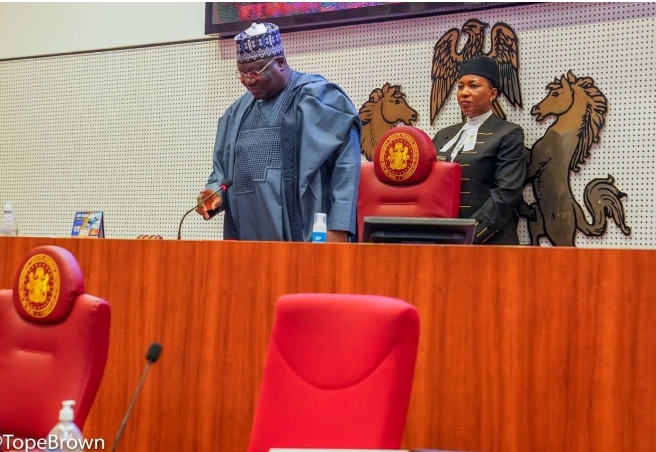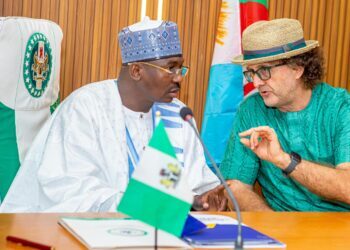The National Assembly has inaugurated the newly established Democracy Radio Station (104.9 FM) set up by the National Institute for Legislative and Democratic Studies (NILDS) to deepen democracy in Nigeria.
Speaking at the ceremony on Wednesday in Abuja, President of the Senate, Ahmed Lawan, said that the setting up of the station was part of the laudable achievements of the 9th National Assembly.
Lawan also inaugurated the newly established Legislative Centre for Security Analysis, aimed at boosting the fight against security challenges in the country.
He said that the station would also help to bridge the gap between the electorate and their elected representatives.
“It is also an avenue for the parliament to tell our stories to a wider audience, so as to change the misperception and misinformation in the public domain,” he said.
He said that the legislature which was the fulcrum of democracy worldwide had been misunderstood either for mischievous purposes or at times owing to its underdeveloped stature historically.
Lawan said that it was expected that the station would draw listeners from Nigeria and the international community.
“This is in view to sensitise the Nigerian public to imbibe, support and defend democratic and legislative ethics as part of the mandate establishing NILDS.
“Accordingly, the radio station has the potential to propagate and entrench civic political culture such as tolerance, respect for the rule of law, observance of fundamental human rights and strengthen public institutions with far-reaching implications for democratic consolidation.
“Furthermore, the radio station will create awareness about the business of governance; conscientise and mobilise the citizens to participate effectively in the political process and disseminate information on how best the citizens can constructively engage the state.
“It is to provide analysis on policy and legislative measures; share knowledge about best practices; and serve as a medium to transmit information on the activities of the National Assembly and other democratic institutions,” he said.
Lawan said that Section 14 sub-section (2) (b) of the Constitution stated that the security and welfare of the people shall be the primary purpose of government.
“It is therefore in lieu of this, that NILDS has positioned itself to assist the legislature in achieving one of our cardinal legislative agenda of the 9th National Assembly in guaranteeing security for Nigerians,” he said.









